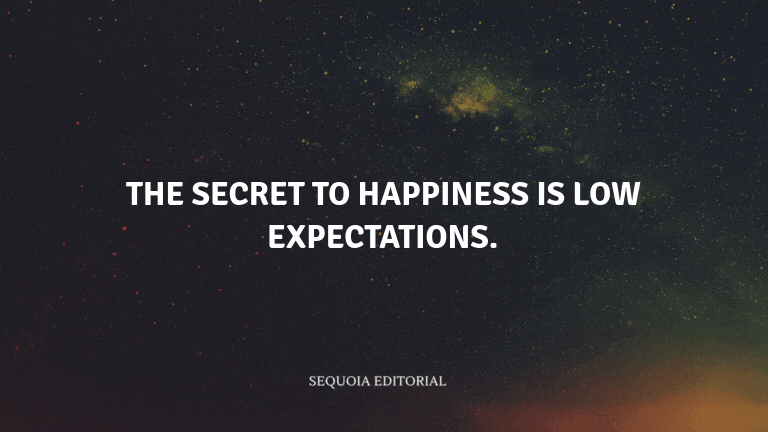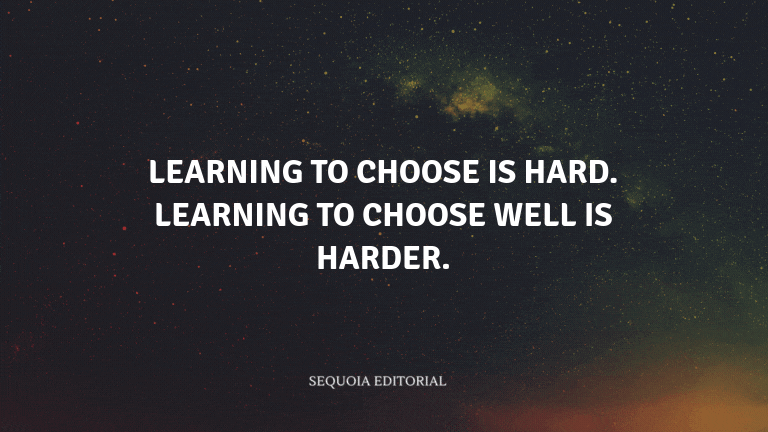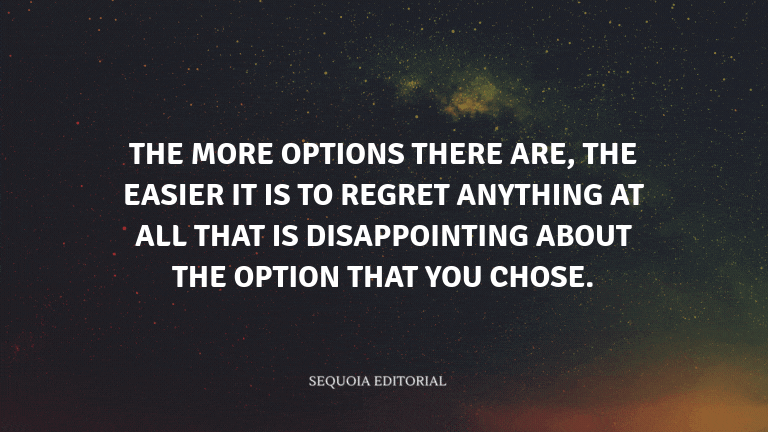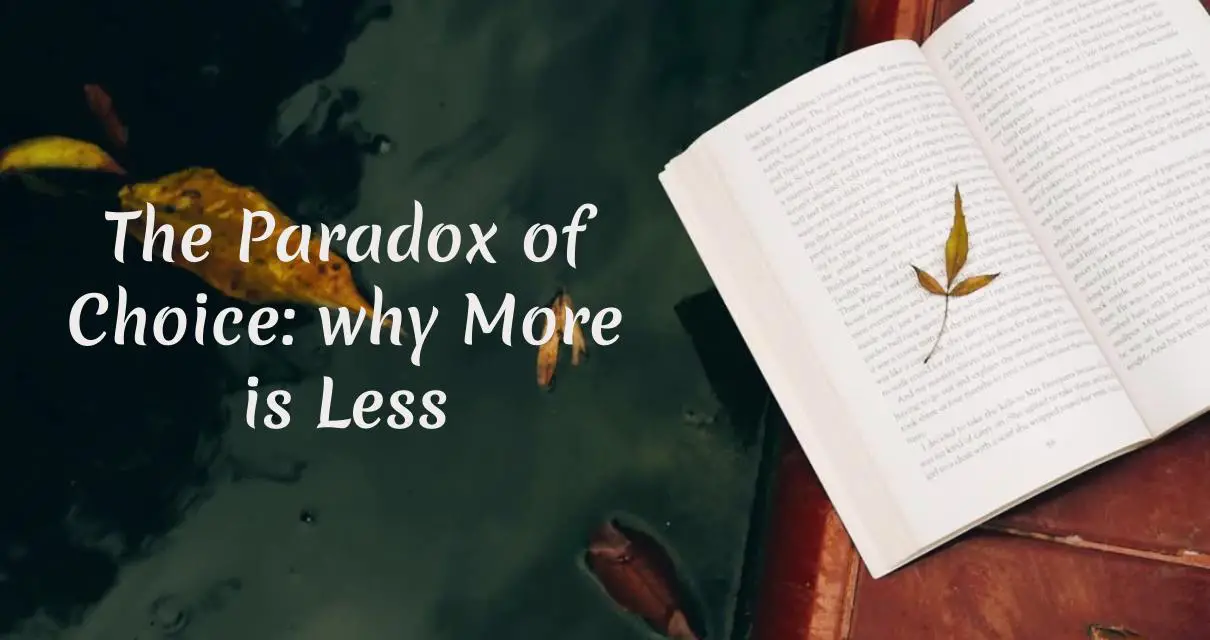The Paradox Of Choice: Why More Is Less is about the impact of having too many choices on our lives. The author, Barry Schwartz, explores how an abundance of options can lead to anxiety, regret, and dissatisfaction. He presents practical strategies to help readers make better decisions and find more fulfillment in a world of endless possibilities.
Table of Content
The Paradox Of Choice: Why More Is Less Book Summary
Modern life offers an abundance of choices, from the mundane to the monumental, and Barry Schwartz, the author, delves into the psychological impact of this surplus.
He introduces the concepts of maximizers and satisficers, drawing on the work of Herbert Simon, and explains how maximizers, who constantly seek the best option, often end up feeling overwhelmed and dissatisfied.
Choice overload, as described by Alvin Toffler, is the state where an excess of options leads to anxiety and decision paralysis. Schwartz illustrates how this phenomenon affects a wide array of decisions, from consumer purchases to career paths.
The book offers insight into why more choice is not always better. Schwartz argues that a limited set of alternatives often leads to better decisions and more contentment.
To support his theories, he presents case studies and research findings, including a study on the selection of jams in a supermarket, which highlighted that when presented with too many choices, people were less likely to make a purchase.
Paradoxically, the freedom to choose can sometimes confine us. The fear of making the wrong decision can be paralyzing, and the anticipation of regret can taint the joy of what is chosen.
Throughout the book, Schwartz discusses the impact of choice on various aspects of life, such as love, work, and leisure. He emphasizes the need for strategies to cope with and conquer the paradox of choice.
One such strategy is to be a 'satisficer' rather than a 'maximizer', to seek options that meet a certain standard rather than exhaustively searching for the best possible choice.
Additionally, the author advocates for 'satisficing' in important areas of life, such as career decisions, where a good option can often lead to more satisfaction than the elusive 'best' option.
Moreover, he recommends 'bounded rationality', a concept put forth by Herbert Simon, which suggests that decision-making should be based on available information and cognitive limitations, leading to quicker and often better choices.
Finally, the book offers practical advice on how to simplify our lives in the face of overwhelming choice, such as embracing constraints, setting standards, and learning to accept 'good enough' decisions.
Schwartz concludes with a compelling argument for the benefits of limiting choices in both public policy and individual lives. By doing so, he suggests, we can alleviate the anxiety and dissatisfaction that often come with too much freedom.
The Paradox Of Choice: Why More Is Less Quotes
- The secret to happiness is low expectations.

- Learning to choose is hard. Learning to choose well is harder.

- The more options there are, the easier it is to regret anything at all that is disappointing about the option that you chose.

The Paradox Of Choice: Why More Is Less Ending Explained
At the end of The Paradox Of Choice, Barry Schwartz reiterates the critical points made throughout the book, emphasizing the need to recognize choice overload and its negative impact on well-being.
He offers a hopeful message by presenting practical strategies for managing excessive choices, such as becoming a 'satisficer', embracing constraints, and simplifying decision-making processes.
The book leaves readers with a sense of empowerment, as they are encouraged to take control of their choices and find a balance that leads to greater contentment and fulfillment.
Characters in book The Paradox Of Choice: Why More Is Less
- Barry Schwartz: The author and main voice of the book. A psychologist who delves into the psychological effects of choice overload and proposes solutions.
- Maximizer: A person who seeks and accepts only the best, leading to higher expectations and greater potential for regret.
- Satisficer: An individual who looks for choices that are "good enough" and is generally more content with decisions.
- Alvin Toffler: The author references Toffler's concept of 'overchoice' as a starting point for the discussion on the paradox of choice.
- Herbert Simon: His distinction between maximizers and satisficers is fundamental to understanding the impact of choices on individuals.
Key Lessons
- Quality Over Quantity: Having more choices does not necessarily lead to better decisions or greater happiness; focus on the quality of options instead.
- Embrace Constraints: Limiting your choices can actually lead to more freedom and satisfaction by reducing decision fatigue and anxiety.
- Be a Satisficer: Striving for the best can lead to constant disappointment, while 'good enough' choices often result in more happiness and peace of mind.
- Set Standards: Clearly define your criteria for success in any decision to avoid being overwhelmed by irrelevant options.
- Regret Is Inevitable: Accept that regret is a natural outcome of making choices and learn to manage it rather than trying to avoid it entirely.
- Maximize with Caution: Being a 'maximizer', constantly seeking the best, can lead to dissatisfaction and anxiety, so be mindful of your approach to decision-making.
My Personal Opinion
Is The Paradox Of Choice: Why More Is Less worth reading? Totally, I loved the comprehensive exploration of choice overload and its effects. It's a thought-provoking book that challenges conventional wisdom.
I found Schwartz's analysis to be insightful, and it resonated with my experiences. The research-based approach is compelling, though at times, the depth of information can be a little overwhelming. I appreciated the practical advice offered, which can be implemented in daily life to reduce stress and improve decision-making.
I would recommend this book to anyone seeking a better understanding of the psychological aspects of decision-making. It's particularly relevant in today's consumer-driven society. Readers who have ever felt overwhelmed by choice or struggled with regret will find valuable insights and strategies in this book.

